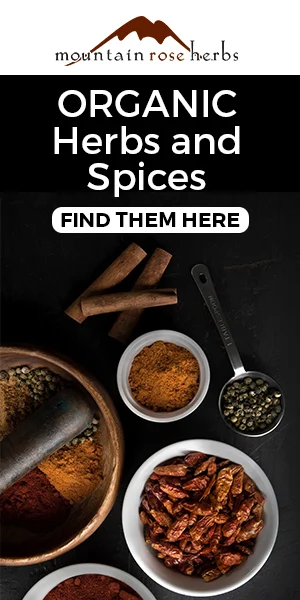The Power of Carminative Herbs: Natural Remedies for Digestive Comfort
Are you tired of feeling bloated or experiencing discomfort after meals? Carminative herbs might be the solution you need! These herbal remedies are known for their ability to soothe the digestive system, making them excellent allies for anyone looking to improve gut health. In this article, we’ll explore what carminative herbs are, how they work, and some popular examples to incorporate into your daily routine.
What Are Carminative Herbs?
Carminatives are herbal solutions that contain volatile oils, which help stimulate and regulate gut contractions. By calming the digestive tract, these herbs can ease griping pains and assist in the elimination of gas. This makes carminatives particularly effective for managing issues like bloating and indigestion.
How Do Carminative Herbs Work?
Carminative herbs relax the muscles in the gut and promote better digestion. In addition, they help reduce gas buildup and improve overall gastrointestinal function, making meals more enjoyable and comfortable.
Critical Benefits of Carminative Herbs
- Ease Gas and Bloating: Carminatives help expel gas and reduce the feeling of fullness in the stomach.
- Soothing Effects: They calm the digestive tract, which can be especially helpful during stressful times.
- Enhanced Digestion: By promoting better digestion, these herbs can improve nutrient absorption.
Explore the World of Carminative Herbs
Incorporating carminative herbs into your diet can be simple and delicious. You can find these herbs in health food stores, specialty spice shops, or online retailers. Here are some popular options:
Anise Seed (Pimpinella anisum)
Anise seeds, with their unique sweet, licorice-like flavor, are not just a culinary delight but also a digestive powerhouse. Whether brewed into teas or baked into goods, these seeds work wonders in relieving gas and bloating, transforming my meals into a more enjoyable experience.
Basil (Ocimum basilicum)
This aromatic herb is a staple in my kitchen. I frequently toss fresh basil into salads and use it as a seasoning in various dishes. It not only elevates flavors but also supports digestion, making every bite a little healthier and tastier.
Bee Balm (Monarda didyma)
Known for its calming properties, I often reach for bee balm or wild bergamot when I need digestive relief. Brewing it into a soothing tea brings me comfort, and its delightful scent enhances the overall experience while helping to ease my digestive issues.
Black Pepper (Piper nigrum)
Black pepper, a versatile spice that plays a pivotal role in my cooking. Its ability to enhance flavor and stimulate digestion is unparalleled. Sprinkling it over my meals not only adds a kick but also promotes the secretion of digestive juices, aiding in nutrient absorption.
Caraway Seed (Carum carvi)
I frequently incorporate caraway seeds into my bread and soups. Their distinct flavor not only adds depth but also helps alleviate gas and bloating, allowing me to enjoy my meals without discomfort.
Cardamom (Elettaria cardamomum)
I find cardamom to be a fragrant and flavorful addition to my teas and desserts. Beyond its delightful taste, it aids in digestion, giving me an extra boost whenever I indulge in a sweet treat or a warm beverage.
Catnip (Nepeta cataria)
While catnip may be famous for its effects on cats, I love brewing it into a calming tea for myself. This delightful tea soothes my stomach and helps reduce gas, providing gentle relief when I need it most.
Chamomile (Matricaria recutita)
Chamomile, a reliable companion for relaxation. Its calming effects and anti-inflammatory properties work like magic in soothing my digestive tract after a heavy meal, making it a go-to choice for digestive comfort.
Coriander (Coriandrum sativum)
I often use coriander, both fresh and dried, to enhance my dishes. This herb not only brings a fresh flavor but also aids digestion and reduces bloating, making each meal a bit lighter and more enjoyable.
Dill (Anethum graveolens)
I frequently add dill to my salads and main dishes. Its distinct flavor not only brightens up my food but also helps relieve gas and discomfort, ensuring that my dining experience remains pleasant.
Fennel Seed (Foeniculum vulgare)
Fennel Seed (Foeniculum vulgare) is a comforting choice for me. To harness its soothing effects, I often brew fennel tea. This powerful carminative eases gas and promotes digestion, making it a comforting drink that I turn to after a heavy meal, providing a sense of relief and relaxation.
Ginger (Zingiber officinale)
Ginger is indispensable in my kitchen. I incorporate it into various dishes and teas because it provides significant digestive benefits, easing nausea and reducing gas, ultimately helping me feel my best.
Holy Basil (Ocimum sanctum)
Holy Basil is a herb I revere for its many health benefits. It not only helps reduce stress but also aids digestion. I love adding it to my herbal teas, creating a delicious drink that brings relaxation and digestive support in one sip, providing a sense of calm and well-being.
Hyssop (Hyssopus officinalis)
Hyssop has become a go-to herb in my herbal remedies. I brew it as a tea to help calm my digestive issues, and its mild flavor complements other ingredients nicely, making it easy to incorporate into my routine.
Marjoram (Origanum majorana)
Sweet marjoram enhances my savory dishes with its delightful flavor. Additionally, I appreciate how it soothes my digestive tract and helps with gas, allowing me to enjoy my meals without hesitation.
Oregano (Origanum vulgare)
Oregano adds a burst of flavor to my cooking and contributes to my digestive health. By incorporating it into various dishes, I not only enjoy a delicious meal but also support my overall well-being.
Parsley (Petroselinum crispum)
I love using fresh parsley as a garnish and ingredient in my salads and smoothies. It promotes digestion, and its vibrant flavor brightens up my meals, making every dish a bit more colorful and nutritious.
Peppermint (Mentha piperita)
I often sip on peppermint tea when I need quick relief from discomfort or gas. Its refreshing flavor and well-known digestive benefits make it a comforting choice that I actively seek out.
Rosemary (Rosmarinus officinalis)
Rosemary is a favorite herb of mine for enhancing flavors in cooking. I use it in roasted dishes and infused oils, and it’s a bonus that it also helps stimulate digestion, making my meals both delicious and healthful.
Thyme (Thymus vulgaris)
Thyme is another herb I frequently incorporate into my meals. Its antimicrobial properties benefit my digestive health. I love using it in soups, stews, or as a seasoning for meats to add depth and flavor.
Vervain (Verbena hastata)
Finally, I find vervain to be a soothing option for calming digestive issues. I enjoy it as a relaxing tea that promotes a sense of calm and relaxation, rounding out my collection of digestive aids. I add fresh parsley to salads or smoothies.
Carminative Herbs are Valuable Allies
Carminative herbs are indeed valuable allies for anyone seeking digestive comfort. By incorporating these herbs into your meals or enjoying them as teas, you can alleviate gas, bloating, and other digestive discomforts. Remember to consult a healthcare professional before starting any new herbal remedies, especially if you have existing health conditions. Embrace the natural benefits of carminative herbs, and enjoy a happier, healthier digestive system!
Disclaimer
Disclaimer Blog
The information presented on the Heart of Herbs Herbal School/Demetria Clark websites is for educational purposes only. Heart of Herbs Herbal School/Demetria Clark Education LLC makes neither medical claims nor intends to diagnose or treat medical conditions. Links to external sites are for informational purposes only. Heart of Herbs Herbal School/Demetria Clark neither endorses them nor is in any way responsible for their content. Readers must do their own research regarding the safety and usage of any herbs, recipes, or supplements.
Affiliate Disclosure
Some posts contain affiliate links. When you click on these and make a purchase the cost is the same for you, but we earn a small commission that helps me to provide scholarships to students. We only promote products that we know our clients have liked themselves.
Heart of Herbs Herbal School is a Amazon affiliate. As an Amazon Associate, we earn from qualifying purchases.



